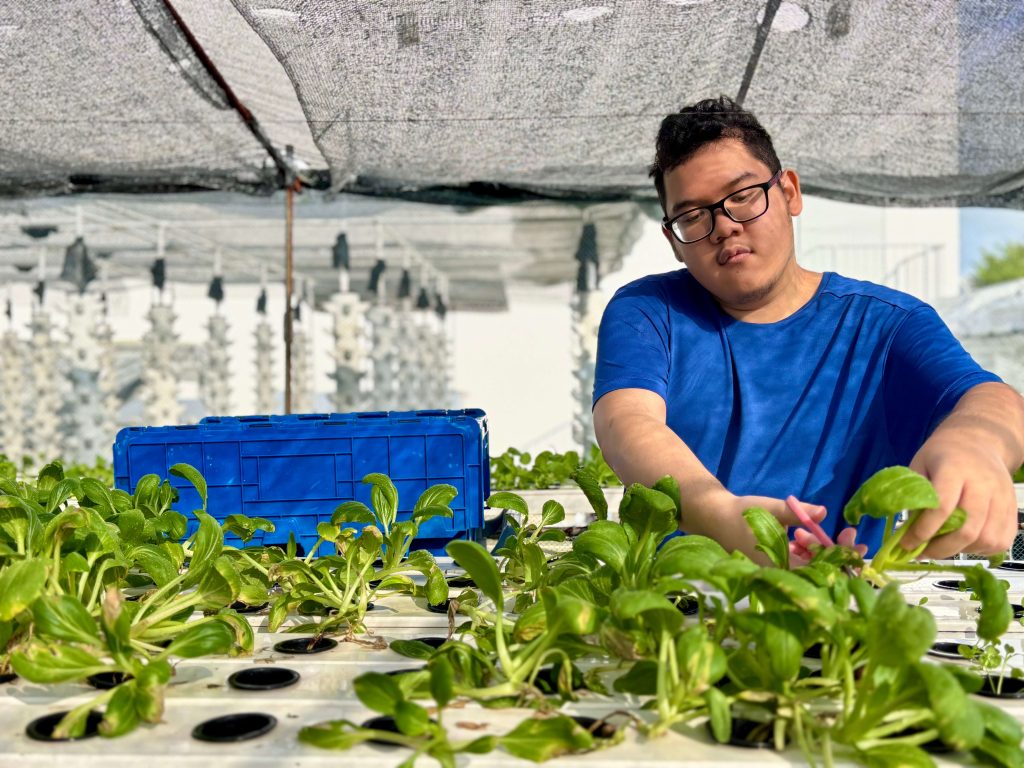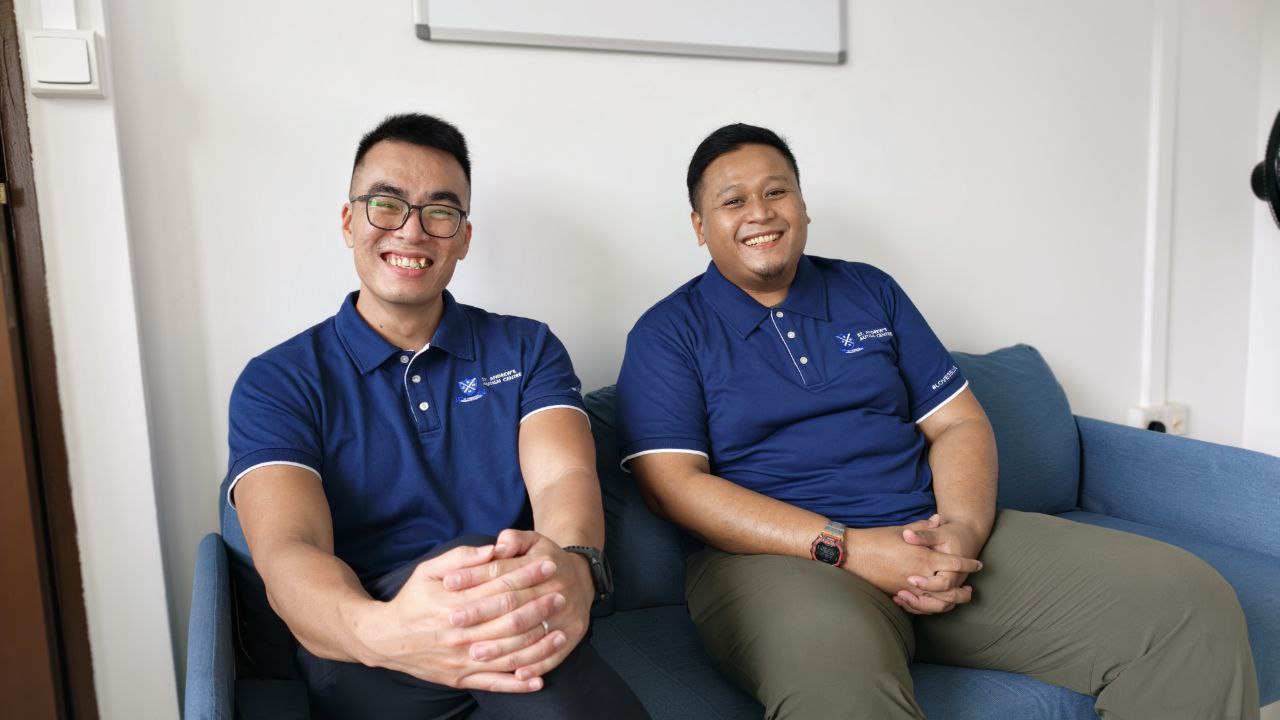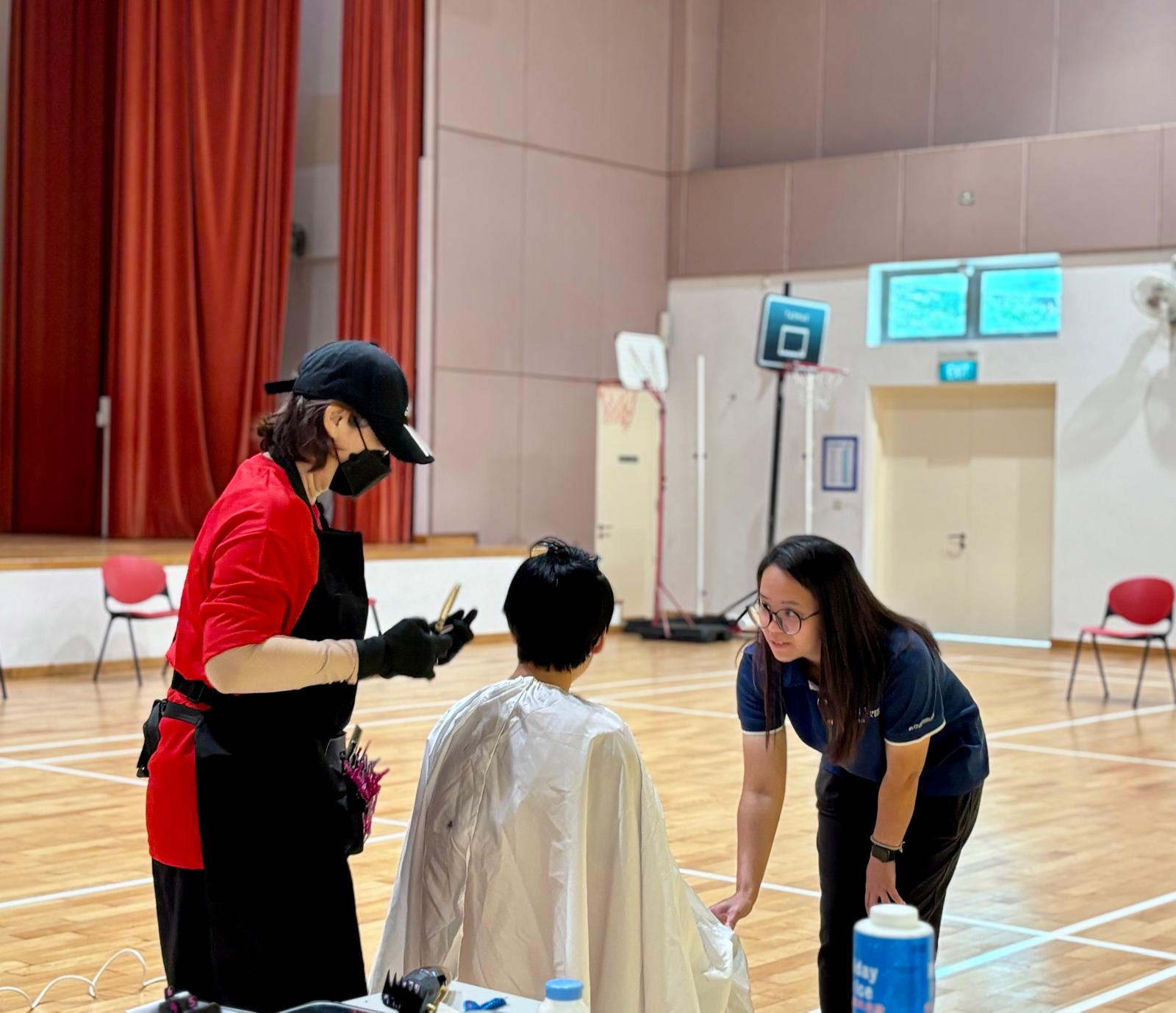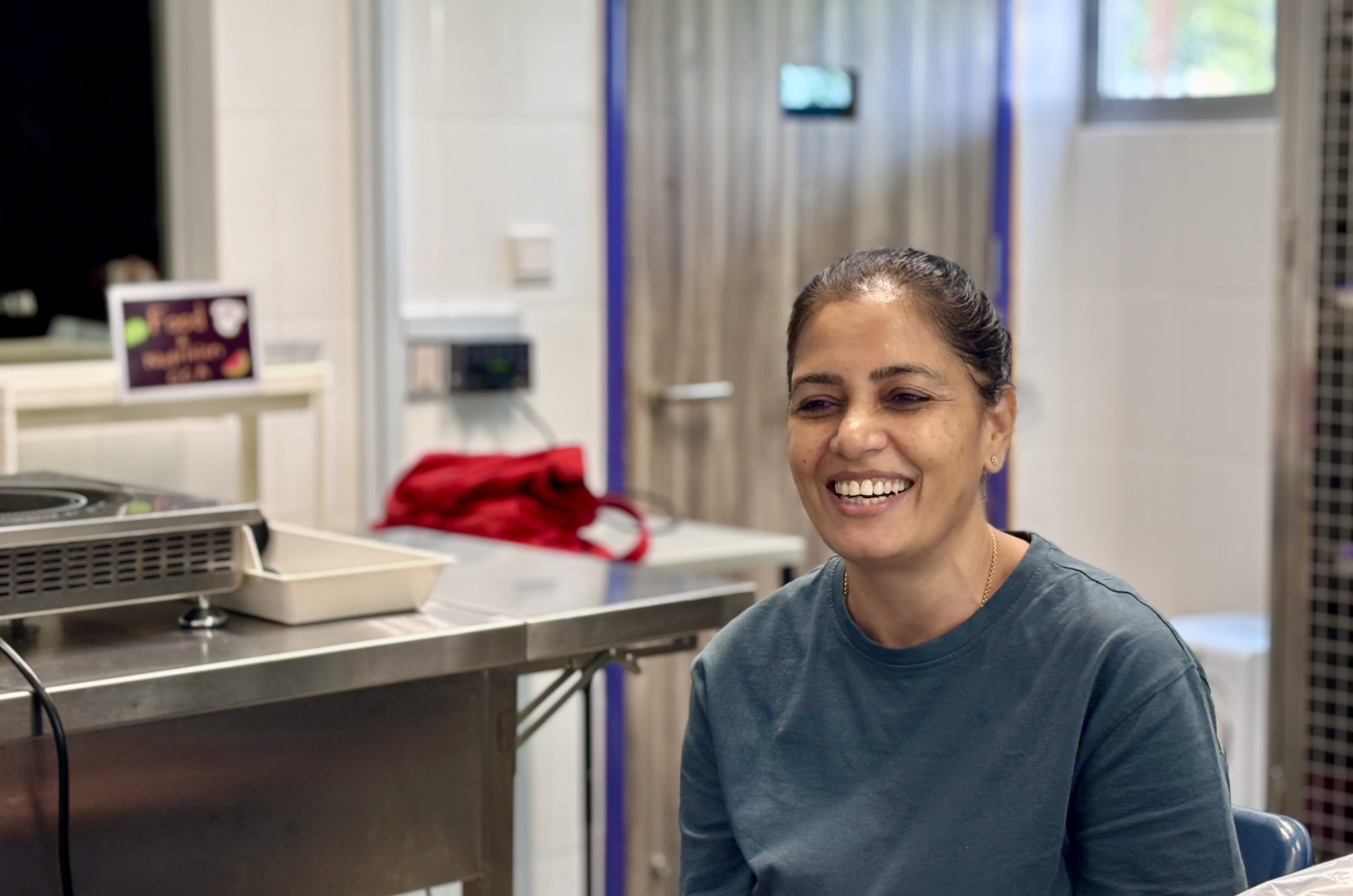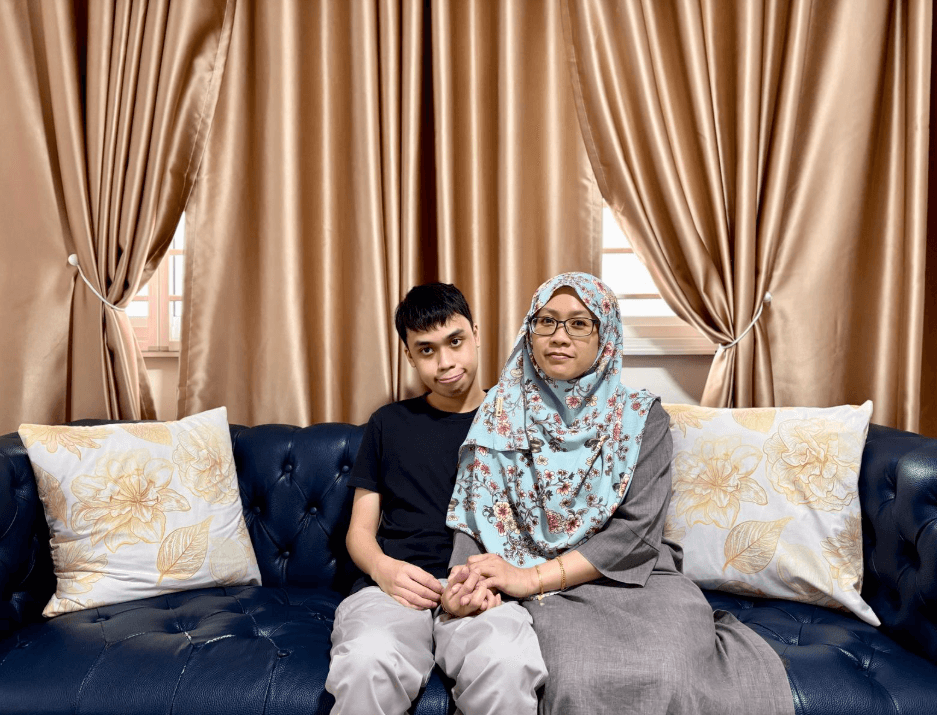Raising a child with autism comes with its own set of challenges, but for Mr Zulkifli, love and belief in his son’s potential have always outweighed fear. He never wanted to set limits on what Imaan, his 18-year-old son with moderate autism, could contribute to society.
For years, Imaan thrived at St. Andrew’s Autism School. The routines, community and sense of purpose gave him a place where he felt safe and understood. But when graduation came, what should have been a proud milestone became a source of quiet anxiety.
“He didn’t understand,” Imaan’s father says softly, “every morning, he would ask to be brought to school, to St. Andrew’s. We had to remind him that he had already graduated, sometimes showing him photos from his graduation to help him understand that school was over.”
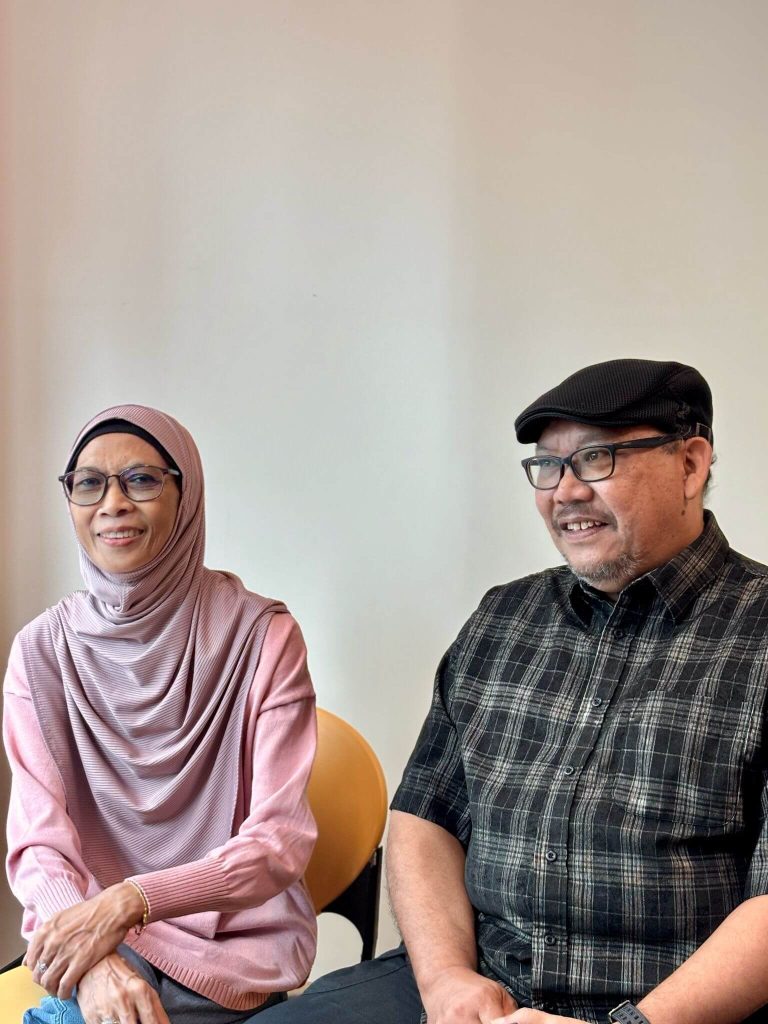
With no post-school programme immediately available to him, Imaan suddenly found himself perpetually at home, without structure or purpose. Mr Zulkifli, his main caregiver, juggled the demands of work while trying to plan activities that would keep Imaan engaged.
But it wasn’t just Imaan’s struggle. “This happens to so many families,” Mr Zulkifli says. “When our children graduate at 18, and there are not enough spaces in post-school programmes or day activity centres, they end up staying at home. The progress they have made in school slowly starts to fade away.”
Addressing the Post-18 Cliff Strategically
Recognising this growing gap, St. Andrew’s Autism Centre launched the Dignity of Work (DoW) programme, a sheltered work environment tailored for persons with moderate autism who aren’t yet ready for open employment, but who have much to contribute, given the right support.
When Imaan was accepted into the programme, something shifted.
Today, Imaan spends his mornings at SAAC’s urban farm, planting, watering, and harvesting crops alongside his peers, all under the guidance of a job coach who understands their needs. The produce they grow is then sold to restaurant partners, and the public through community fridges, turning their efforts into something tangible and valued.
While the urban farm provides trainees with micro-employment opportunities and a small stipend, it offers something far more meaningful to Imaan and others like him, a sense of dignity, purpose, and growing self-confidence.
“He comes home smiling now,” his father says with joy.
There’s no more frustration. No more sadness. He feels like he belongs somewhere. Like he has something to look forward to.
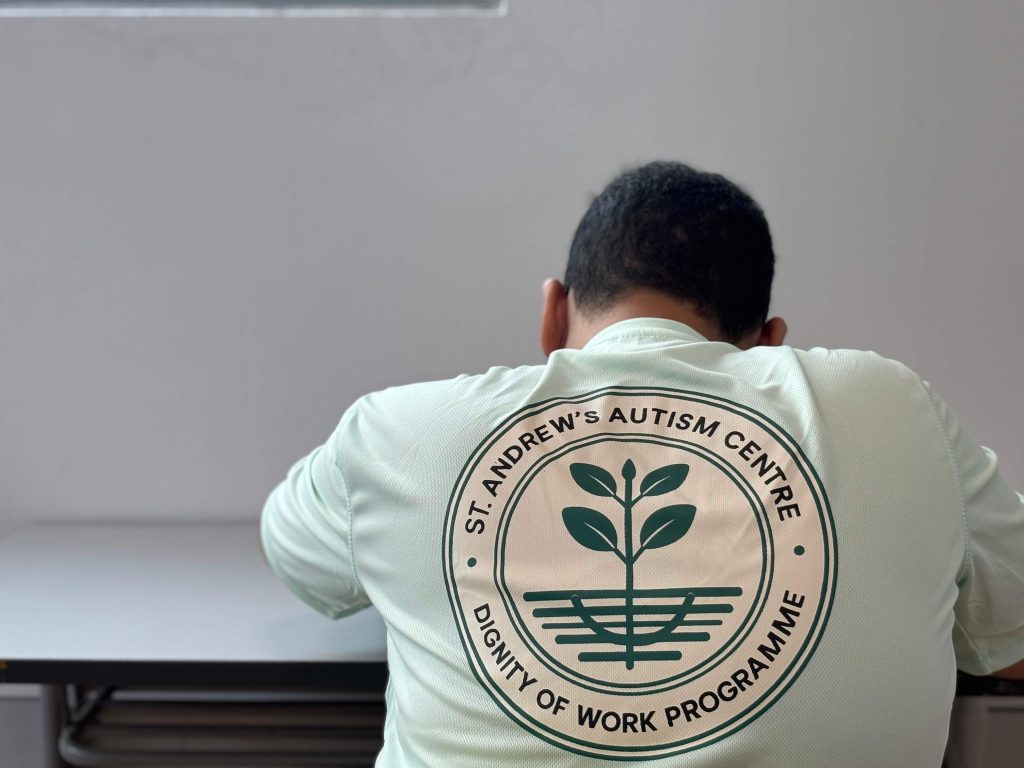
Let's Open More Doors
While Imaan’s story is one of hope, many others with moderate autism are still left without options, and the caregiving burden for their families only gets heavier.
With your support, we can open more doors, create more spaces and give individuals like Imaan, a chance to see themselves not through the lens of their limitations, but through what they are capable of achieving.
If you’d like to support persons with autism and their families, you can do so by:
Donating to our programmes
Help us provide persons with autism with highly structured programmes and give respite to their caregivers.
Volunteering with SAAC
Give the gift of your talents and time when you volunteer with us. We welcome those with a heart to serve.
Advocating for Autism
Those on the autism spectrum are often misunderstood and excluded from the public eye. Mention us to friends & family.

